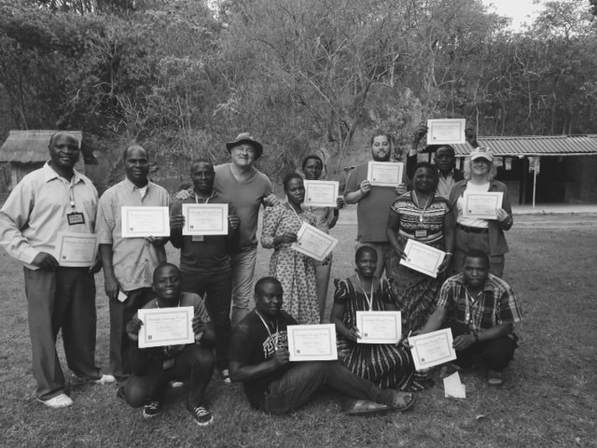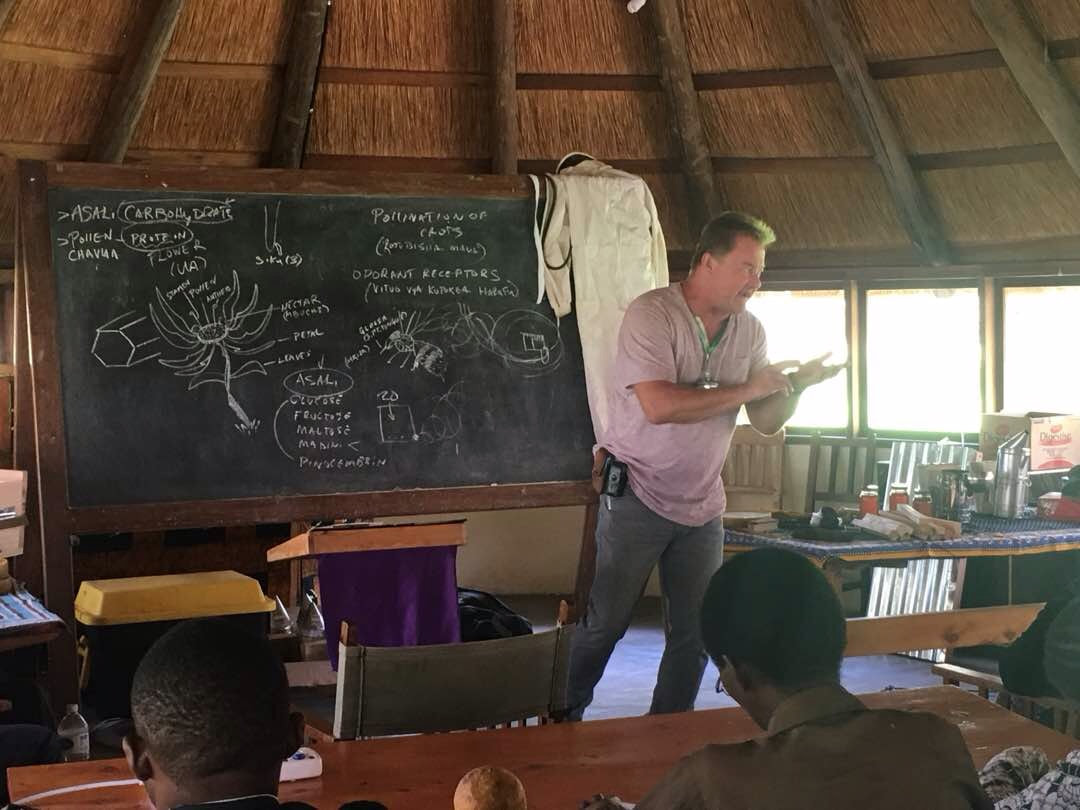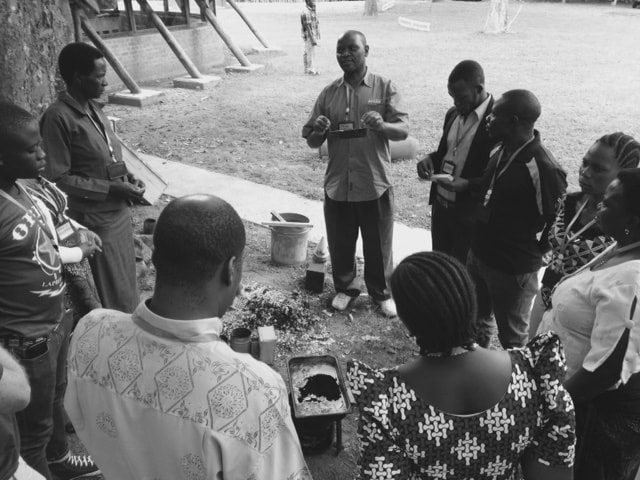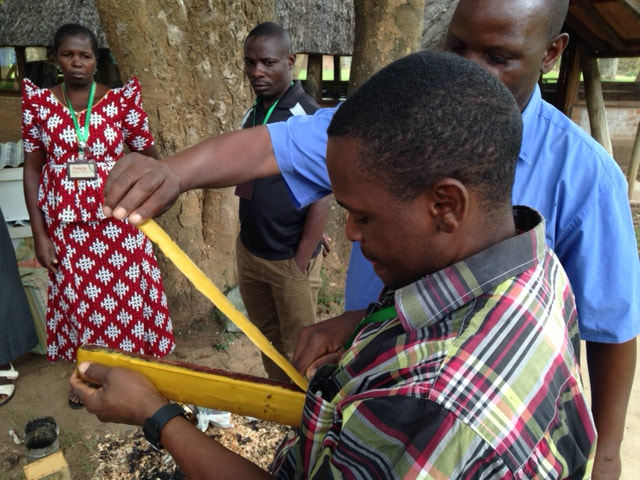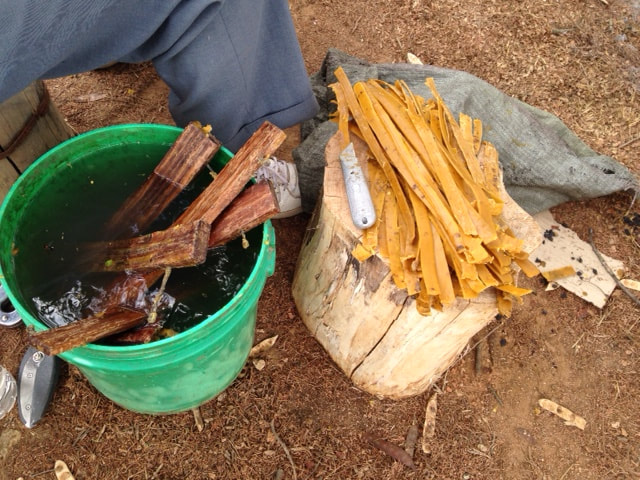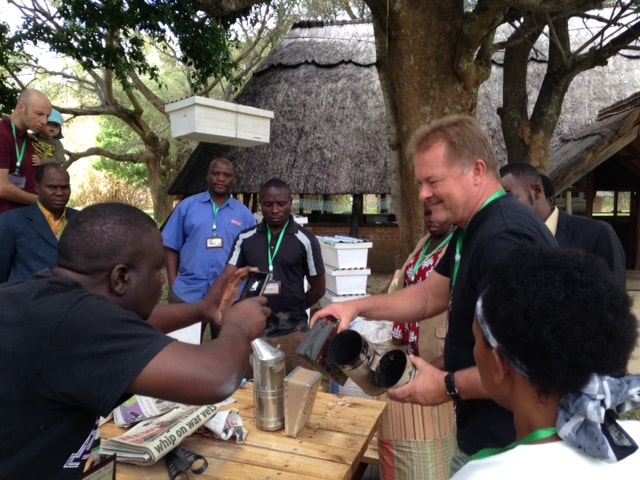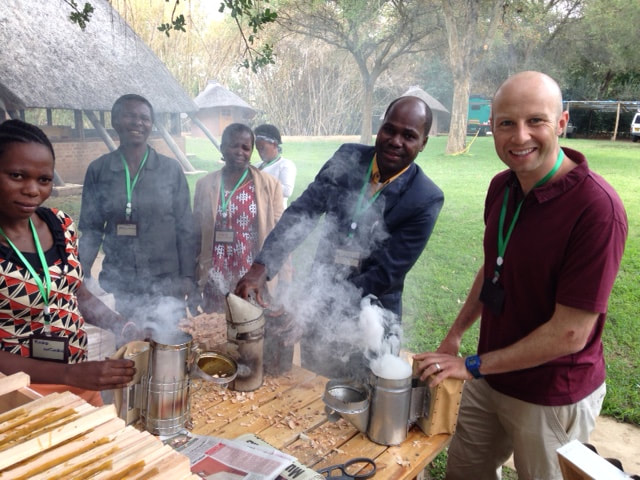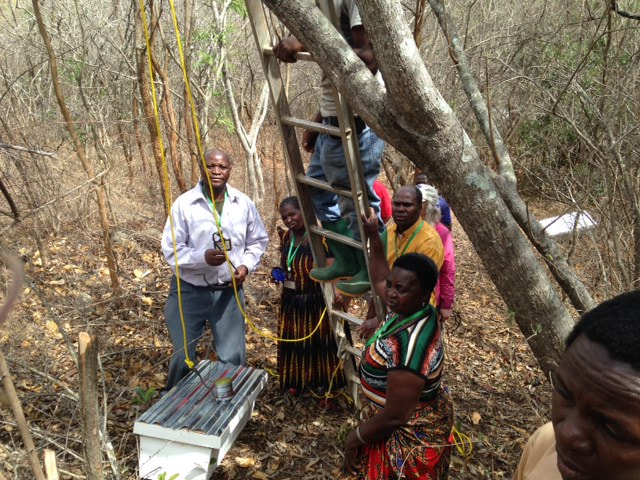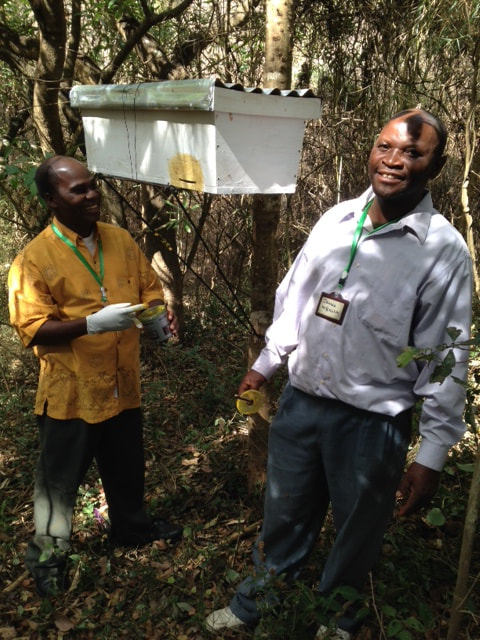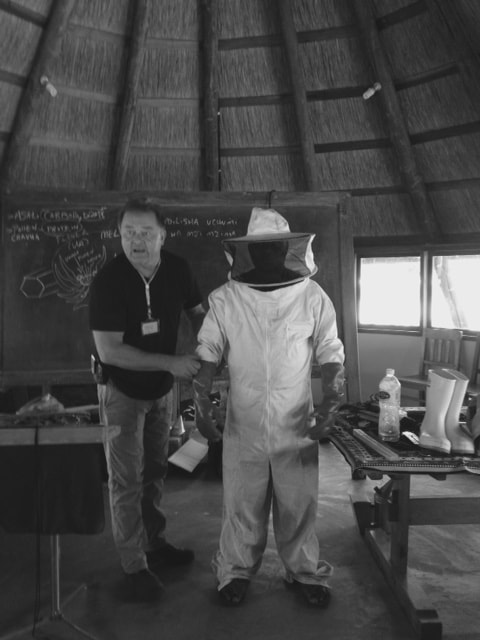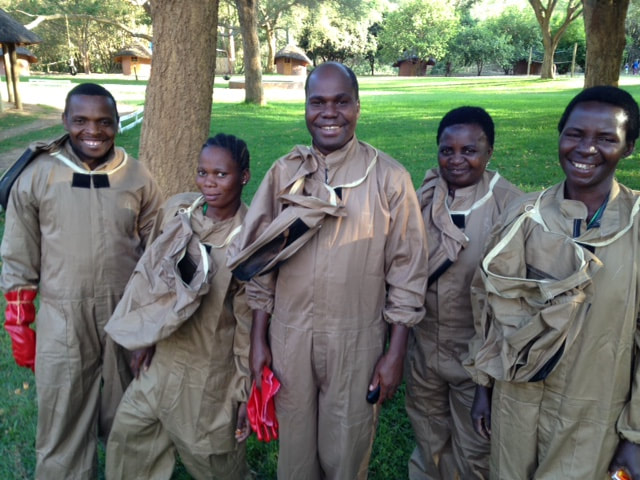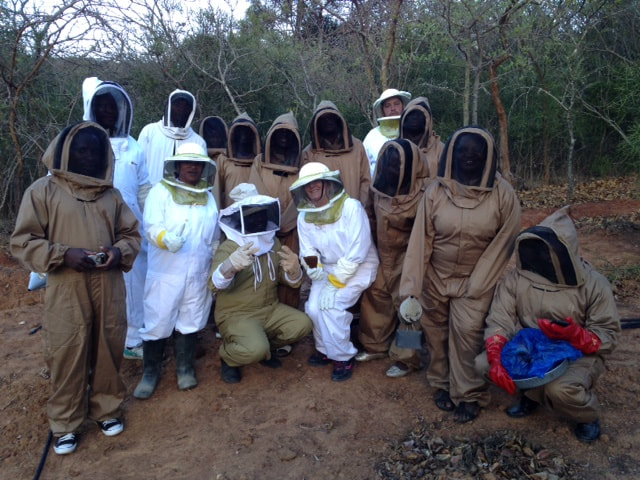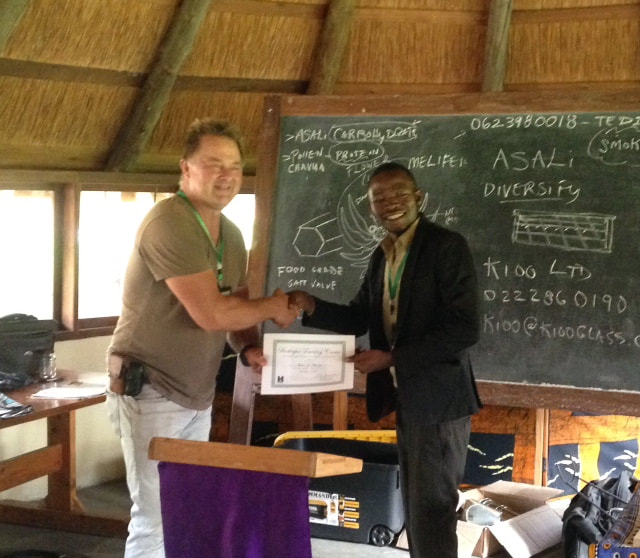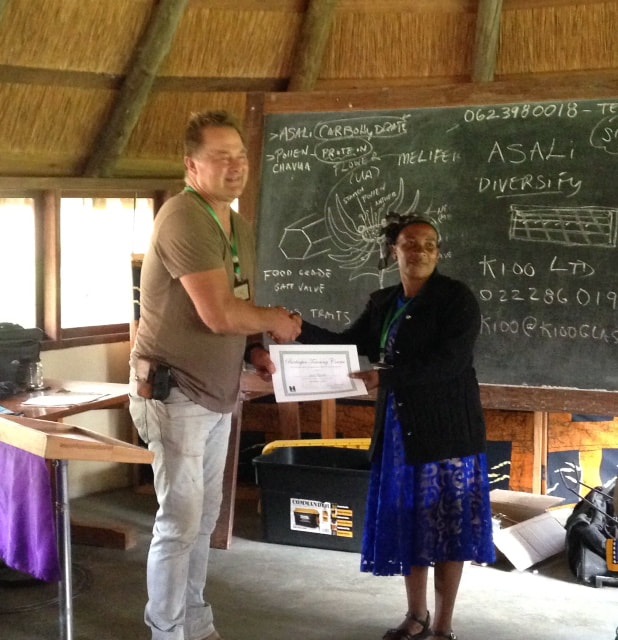Iringa Training November-December 2017
|
The end of November found us working with beekeeper trainers who have the goal of using what they learn to start beekeeping co-ops and train others in beekeeping skills. They were a diverse group from different organizations working in Tanzania and private individuals. Two of the participants came from California, United States to learn beekeeping skills so they could travel to Sierra Leone and train their distant family and beekeepers from their families village outside of Freetown!
Organizations represented: Mahenge-Ifakara Diocese, Champion Chanzige Secondary School, Peace Corp, Kilimo Timilifu and Emmanuel International as well as interested individuals. |
|
We discussed Theory aspects the first day with notable interest in gestation period of the different castes of bees in a hive, as well as duties of worker bees, drones and Queen during their lifespans. How to attract Primary swarms was one of our main focuses. The second day we focused on making starter strips, baiting bee hives to draw primary swarms, and properly hanging hives in the local bush to attract swarms to use in our future training. We also suited up and inspected hives near the village of Lundamatwe. The participants got "hands on" experience in starting and using smokers, as well as wearing proper clothing to protect oneself when harvesting. |
The third day of training we spoke in depth about proper harvesting, processing and packaging of honey. The African beekeeper would do well to set up a beekeeping co-op in the area he comes from so he/she can lobby for good sections of forest for their hives as well as have wherewithal to purchase jars, containers and boxes for use in retail sales of honey.
Thanks for your interest in African beekeeping!
Ted Rabenold, Africanbeekeeping.com
Here are more photos:
Thanks for your interest in African beekeeping!
Ted Rabenold, Africanbeekeeping.com
Here are more photos:
|
|
